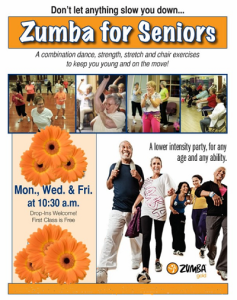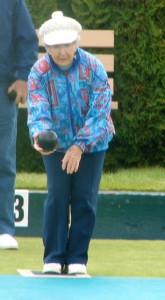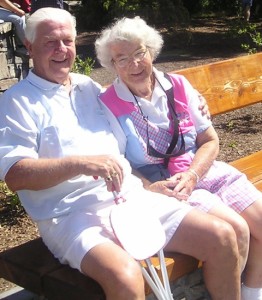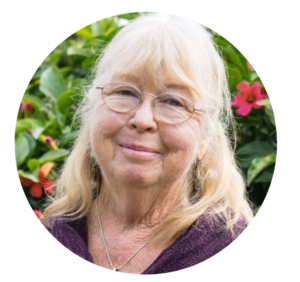
As I ate my breakfast granola one morning last week, a Today Show host read from her teleprompter: “New research tells us that since life expectancy continues to rise, age 60 should no longer be considered old. Sixty is the new 40.” A simple statement, one that surfaces every year about this time, but what does it mean? And more importantly, what is its significance, to you and to me?
Is 60 the new 40?
Increasingly, people over 60 feel more like 40, and now there is science to confirm how they feel. The place on our life line that is labeled “old” is moving. Those who have passed the Medicare milestone birthday, like me, don’t generally consider ourselves “over the hill,” and definitely don’t care to be called old, or elderly, or even seniors, although I’ll cop to that last one if it gets me a discount at the grocery store or the movie theater. No, we prefer the terms mature, experienced, wise, older adults, and, if born between 1946 and 1964, Boomers. And why? Because we don’t feel old.
The Today show announcer got me thinking. When I was 40 I certainly did feel older than I do today. I was working two, sometimes three, jobs to make ends meet. Two of my four children were still at home and when I wasn’t at work I was in the car driving someone somewhere, or watching someone from the sidelines. I loved my kids and my work, and felt full of joy much of the time, but exhausted the rest. My joints ached from undiagnosed Rheumatoid Arthritis, and my feet ached from carrying too much weight; I worried about the high blood pressure my doctor had recently noted.
Now that I have retired from work and my children have moved into adult lives of their own, I have time to exercise, to eat better, to worry less. And now I feel younger than I did then. But is that all there is to it? At 67 my arthritis is still with me, and managing my weight appears to be a permanent part of my life as well. But still, I roll out of bed looking forward to each new day, and I definitely don’t feel “old.”
A 2014 survey by the Pew Research Center found that older people declared themselves to feel younger than their chronological age, while younger people defined “old” as much younger than did older survey respondents. My granddaughter, recently having learned about protecting people’s feelings, gently calls me “a little bit old,” which brings a smile to my face every time.
Age 65 Is a Mystical Number
According to Warren Sanderson, a Professor of Economics at Stony Brook University, “the views of aging that are built into policies and into public discussions are almost entirely based on a set of numbers where age 65 has an almost mystical interpretation. That is the age at which people become classified as ‘old’ regardless of where and when they lived.” Sanderson and Sergei Scherbov, a project leader at an Austrian research institute, recently reported that aging is actually slowing down as the increase in life expectancy increases. “If the point for being considered ‘old’ is changed to reflect the fact that we live longer, we get a completely different picture of future population aging,” said Professor Sanderson.
Life expectancy in the US now ranges between 77 and 82, according to the World Health Organization, with many people living past 90. My parents lived until their mid 90s. Mom was taking a senior aerobics class and Tai Chi at 85, and winning trophies for lawn bowling at the same time.
People over 60 who see their parents and friends’ parents living until 75 and 80, perhaps longer, can be forgiven for feeling optimistic about their own longevity, and they tend not to withdraw from active life as early as they might have a couple of generations ago. Instead they are working past 65, retiring in stages, then replacing work hours with time spent volunteering and serving as consultants. Many retired seniors attend yoga classes, meet friends for long walks, buy new helmets and dust off their Schwinn bicycles or trade them in for titanium models. They garden, quilt, knit, build model railroads, care for their grandchildren, fly to Road Scholar classes all over the country, take river cruises, train journeys, attend symphony concerts. Still, I don’t want to pretend it’s one long vacation. Aging is a gradual process, but a persistent one; all the research is saying is that we age more slowly, not that we don’t age at all. My friends in their 70s and 80s warn me that some days they don’t feel as chipper as others, and several of them are dealing with diabetes, heart or respiratory issues.
Physical Well-being
Aging and wellness experts say the best way to enjoy a long and vibrant life is to find a healthy balance in everything we do. Exercising at least 30 minutes a day is a good way to kick start the physical domain, preferably including weight bearing exercises in the regimen. Resistive exercises don’t have to take place in a gym, however — include other activities that you enjoy such as walking, gardening, dancing, swimming, playing tennis, and if you have any joint weaknesses, select them with that in mind. Eat well, lots of vegetables, not much sugar, salt, or meat; manage stress; drink moderately; don’t smoke.
Mental Well-being
I joined a book group before I retired, but I was never able to keep up with the reading schedule. Now I can, and I try to read two to three other books a month as well. Reading a well-written novel takes me out of my own life and stretches my horizons and my imagination. I haven’t enjoyed reading so much since I was a child.
Many communities sponsor a wide range of interest groups for older adults; I joined Lifelong Learning, which sponsors lectures and classes, and I attend a monthly New Yorker Magazine discussion group. These endeavors keep my brain alert and exercised and put me in the company of people who read, think, and have diverse opinions; other activities that will exercise your brain include card games, crosswords, Scrabble, and anagrams.
Emotional Well-being
Many older adults struggle with loneliness and depression. It is easy to withdraw from society and become a recluse, but it isn’t good for us. Human beings are social creatures, and we thrive on face-to-face connections, communication, reflection, friendship, love. Participating in some of the above activities can provide this human connection, but there are other ways to find people — attend a church, mosque, or synagogue; strike up a conversation with someone in the vegetable section of the grocery store, or at the neighborhood farmers market; take ballroom dancing lessons; join The Sierra Club. Look through your old holiday card list, and write to three old friends. Telephone someone on the other side of the country. Call someone in your own community who you haven’t seen for a long time. Make a date to meet for coffee, lunch, or dinner. After the first time, it gets easier. And much more fun.
A New Adventure
Those of use who have passed the 60 mark have many decisions to make – from “should I eat that second piece of pizza,” to “how do I manage the money I’ve saved for retirement?” Sometimes you will need to get help from an expert. You may need to change medical coverage after you reach age 65 – I did, and it was frightening. I reached out to older members of my new community for help and support, and the process became much more manageable with them to suggest doctors, dentists, and insurance carriers.
After I moved away from my home of 35 years to be closer to my daughter and granddaughter, I found myself without friends or planned activities much of the time. When I joined a seniors fitness class, I discovered it was filled with interesting and productive people, some involved in the community chorale, others in the symphony, still others volunteering in local schools. I’m not lonely any more. In fact, I may have overdone it — balance is the key, and I may need to cut back on my social life!
Age is a State of Mind
When I groaned while doing lunges last week, Dorothy, lunging deeper and longer while holding heavier weights than mine, smiled reassuringly. “You can do this, you know. You’re only as old as you feel.” Dorothy, I should tell you, is 84 years old. So, if age is a state of mind, yes, 60 is the new 40. And if we are lucky, have good genes, and take good care of our physical, mental, and emotional well being, 70 can be the new 50, and 80 the new 60. Live long and prosper!
Share this post






Hello – I was glad to come across your blog and enjoyed reading this article. Happy you are doing great and hope to see you next time you are in town. Keep enjoying life!
Thank you, Irma. I am so glad you discovered my blog and hope you will become a regular reader. Marlene